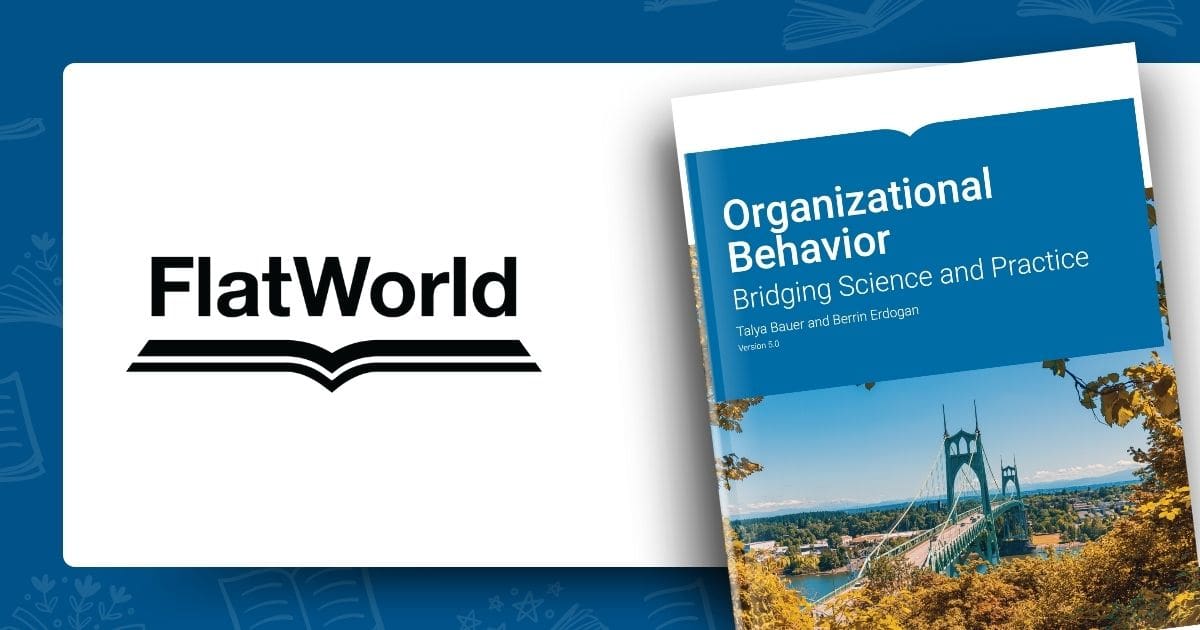In today’s world, artificial intelligence (AI) is transforming every corner of organizational behavior, reshaping how businesses operate and how leaders approach managing their teams. In our new Organizational Behavior v5.0 textbook, we delve into these AI-driven changes, giving your students the insights they need to understand and navigate a workplace influenced by rapid advancements in technology. Here’s a taste of how we explore AI’s interwoven role in modern organizational settings.
AI Tools in Action: A New Era in Management
From chatbots to natural language processing, AI is no longer just a distant concept but a hands-on tool that’s shifting how communication, management, and decision-making unfold within companies. The chatbot market alone is now valued at over $5 billion, showing the scale and influence of AI in streamlining organizational communications and managing employees.
So, can AI extend beyond support roles and become a proactive force in management? Here are just a few thought-provoking areas where AI could redefine leadership:
- AI for Public Sentiment Analytics: Leveraging machine learning algorithms (MLAs), AI can track and analyze public opinion and sentiments, providing leaders with insights that shape how they position their brands and products. (Chapter 13.5 reveals two tools making this possible.)
- AI Coaching Tools: Some AI systems act as virtual coaches, guiding employees with feedback and skill development suggestions, which raises the question: how close can technology come to a human mentor?
- Fairness and Decision-Making: AI offers potential for data-driven decisions that are less biased than human judgments, but can it ever fully remove concerns about fairness and accuracy? (Chapter 11.2 explores AI’s role in fairness and unbiased decision-making.)
Questions for Reflection:
The Future of Leadership in an AI-Driven World
AI is already reshaping roles within organizations, but can it truly replace a leader? In Organizational Behavior v5.0, we ask your students to consider essential questions about the future of leadership:
- If AI continues to evolve, will it eventually take over core functions like setting strategy, solving complex problems, or motivating employees?
- Can algorithms provide the empathy, vision, and trust that human leaders bring?
- As AI’s capabilities grow, how can organizations safeguard their employees' concerns about job security and ethical fairness?
These types of questions encourage students to reflect on their future roles in an AI-enhanced workplace. As they learn, they’ll see that while AI may influence decision-making, human intuition and interpersonal skills remain essential in fostering a healthy organizational culture.
Where We’re Heading:
Embracing AI with Caution
Organizational Behavior v5.0 doesn’t just celebrate the advantages of AI—it also covers the challenges and ethical questions it raises. Students will explore issues of privacy, transparency, and employee anxiety around AI, recognizing that these technologies require careful implementation to be effective and fair. This prepares them for realistic conversations about the benefits and risks of AI.
Here’s what students will gain from Organizational Behavior v5.0:
- A thorough understanding of how chatbots and NLP impact daily operations.
- Insight into machine learning applications in marketing, employee engagement, and analytics.
- Tools to weigh AI's potential to support or threaten human-centric roles.
Prepare your students for the AI-augmented workplace by diving into Organizational Behavior v5.0—a textbook that goes beyond theory to explore practical, thought-provoking insights. With AI’s role only growing, understanding these dynamics has never been more crucial.
In conclusion, Organizational Behavior v5.0 doesn’t just cover trends—it prepares future leaders to make informed, ethical decisions in an AI-driven world.
Save the date—November 15, 2024—and get ready to bring these vital discussions into your classroom with Organizational Behavior v5.0.

